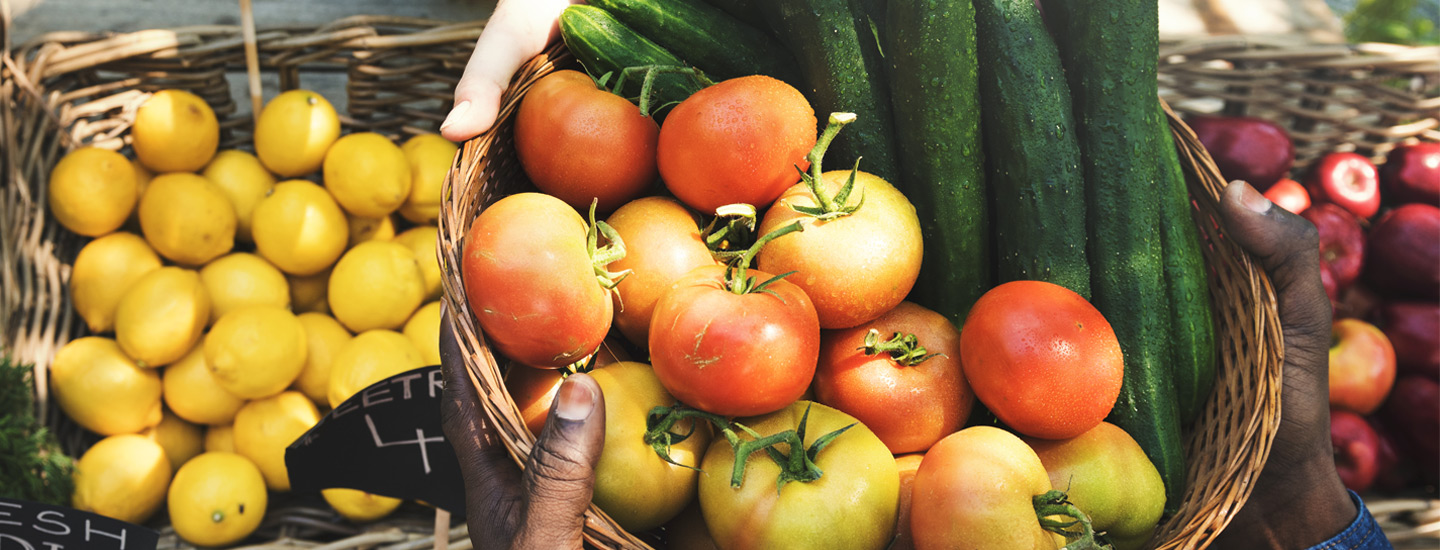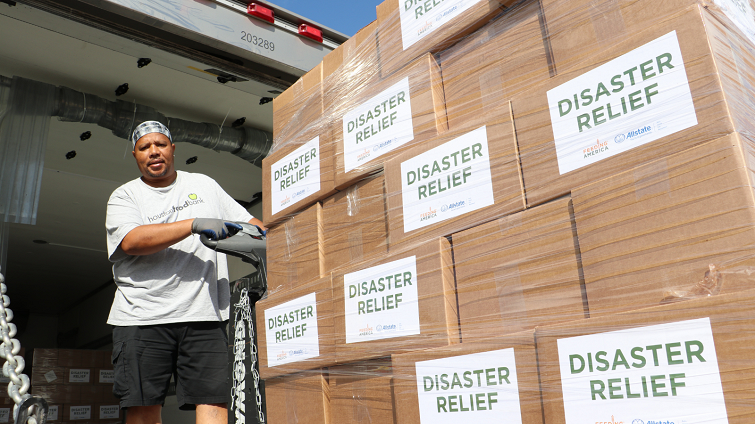June is here, and the season of hurricane preparation is once again upon us. Until this year’s hurricane season ends on Nov. 30, Floridians should be taking a note from past experiences and preparing early.
As for the Feeding Florida network, we have a plan and continue to work with and support our trusted partner, Florida Division of Emergency Management (FDEM). They recommend that both families and businesses have predefined emergency plans and always keep an emergency kit stocked with at least seven days’ worth of supplies. This includes water, dried and canned goods, medicine, and meals that can be prepared without electricity. Food should be “nonperishable packaged or canned food and beverages, snack foods, juices, baby food, and any special dietary items to last at least seven days.”
FDEM recommends storing enough water to last each person one gallon a day, a non-electric can opener and disposable tableware (plates, utensils, etc.). While most of us remember the food itself, we can sometimes forget that we need a sanitary way to consume that food, as well as a safe way to access sealed goods.
The Feeding Florida network of food banks distributed approximately 520 million pounds of food last fiscal year in response to daily hunger needs throughout Florida. As emergency management partners, Feeding Florida food banks take this vast capability and direct it instantly to disaster response when circumstances arise. The Feeding Florida network is a member of the ESF-6 team, providing mass feeding, emergency assistance, life-sustaining resources, and essential services when the needs of disaster survivors exceed local government capabilities. This includes necessities we have stocked at our food banks and are ready to deploy, like pallets of water, MREs (ready-to-eat meals), nonperishables, and other supplies. This is why our food banks and their partners are first on the scene to support the nutritional needs of affected communities.
Because we are a network of food banks that cover every county in the state, we are geographically poised to respond immediately as well. Whether it be a storm like Hurricane Irma, which affected 60 of our 67 counties or Hurricane Michael, which devastated the Florida Panhandle, we take action with the full resources of our system.
In response to Hurricane Irma, Harry Chapin Food Bank, one of our food banks on the west coast where the storm made landfall, was able to provide 3.25 million meals to Floridians in need in the weeks following, or 17% of the food they typically provide in an entire year. Harry Chapin also enhanced availability, creating over triple the number of mobile food pantries throughout their five-county service area (from 19 to 72). In our response to Hurricane Michael, with the power of a network spanning the state, Feeding Florida food banks had the unique ability to share resources and quickly mobilize to the specific area of the state that needed extra help, in this case the ravaged Florida Panhandle. We know firsthand that relief for those who already struggle with food scarcity is crucial during times of disaster and uncertainty.
In times of crisis, Feeding Florida is the only network that can boost up to 300% capacity. If a storm hits and badly affects one area of the state, the Feeding Florida network can quickly and efficiently mobilize resources from across the state to help that area. No other network has this ability.
The Feeding Florida network has been there every time Floridians needed us after a storm, and we will be there for this upcoming hurricane season. To find ways to help support your neighbors by contributing to or volunteering at your local food bank, visit us at www.feedingflorida.org, or stop by a Feeding Florida food bank location. And for your own safety, now that June is here, remember to get a plan!
___
Robin Safley is Executive Director at Feeding Florida.


